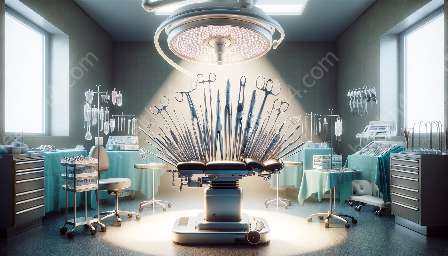Introduction to CT Scanners
Computed Tomography (CT) scanners are advanced medical imaging devices that use X-rays to create detailed cross-sectional images of the body. The technology provides valuable insights for diagnosis, treatment planning, and surgical procedures.
CT scanners are an integral part of modern healthcare and are often used in conjunction with surgical instruments and other medical devices to provide comprehensive patient care.
Understanding CT Scanner Technology
CT scanners utilize a rotating X-ray tube and a detector array to capture multiple X-ray images from different angles. These images are then processed by a computer to create detailed cross-sectional images, allowing healthcare professionals to visualize internal structures and identify abnormalities.
The technology behind CT scanners has advanced significantly, leading to improved imaging quality, faster scan times, and reduced radiation exposure for patients.
Benefits of CT Scanners
CT scanners offer numerous benefits in medical diagnostics and treatment. These include:
- Accurate visualization of anatomical structures
- Evaluation of soft tissue and bone structures
- Early detection of tumors, injuries, and other abnormalities
- Guidance for surgical interventions and minimally invasive procedures
- Monitoring treatment response and disease progression
- Radiology: for diagnostic imaging of the brain, chest, abdomen, and musculoskeletal system
- Oncology: for tumor detection, staging, and treatment planning
- Cardiology: for coronary artery imaging, cardiac function assessment, and vascular studies
- Neurosurgery: for precise localization of brain lesions and guidance during neurosurgical procedures
- Dual-energy CT: allowing for tissue characterization and material differentiation
- CT angiography: non-invasive assessment of vascular structures and blood flow
- Cone beam CT: 3D imaging for dental and musculoskeletal applications
- Low-dose CT: minimizing radiation exposure while maintaining image quality
- Iterative reconstruction: improving image quality and reducing artifacts
Integration with Surgical Instruments and Medical Devices
CT scanners complement the use of surgical instruments and medical devices by providing detailed pre-operative imaging, allowing surgeons to plan procedures with precision and optimize patient outcomes.
For example, in orthopedic surgery, CT scans can assist in precise placement of implants and guide the use of specialized surgical instruments tailored to individual patient anatomy.
Furthermore, medical devices such as stents, pacemakers, and prosthetics benefit from the detailed imaging provided by CT scanners, allowing for accurate placement and optimal functionality.
Applications of CT Scanners in Healthcare
CT scanners are utilized across various medical specialties, including:
The versatility of CT scanners makes them essential tools in modern healthcare, enabling accurate diagnosis, treatment guidance, and post-operative assessment.
Advancements in CT Scanner Technology
Recent advancements in CT scanner technology have expanded its capabilities, such as:
These innovations continue to enhance the clinical utility of CT scanners, making them indispensable in modern medical practice.
Conclusion
CT scanners play a crucial role in the diagnosis, treatment, and management of various medical conditions. Their integration with surgical instruments and medical devices contributes to improved patient care and outcomes. Understanding the technology, benefits, and applications of CT scanners is essential for healthcare professionals and patients alike, as it empowers informed decision-making and promotes the use of advanced medical technology for better healthcare.


